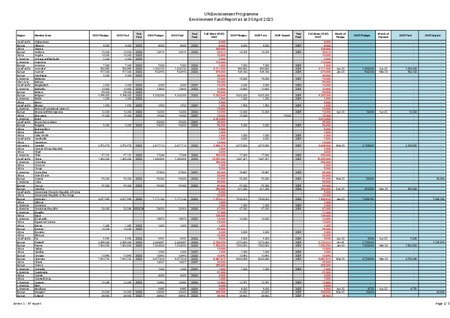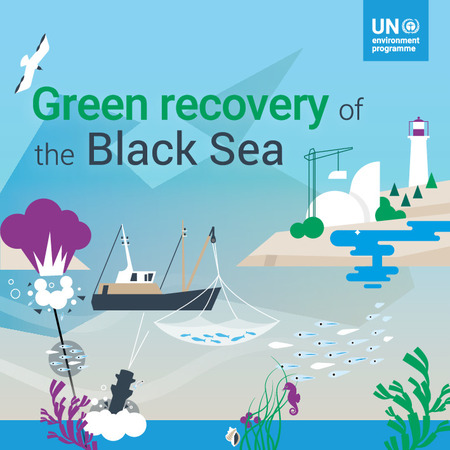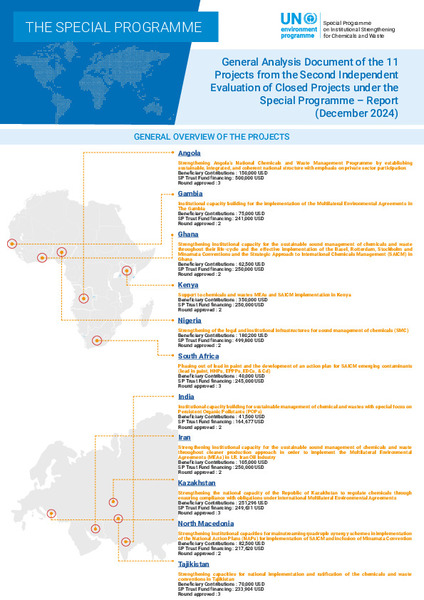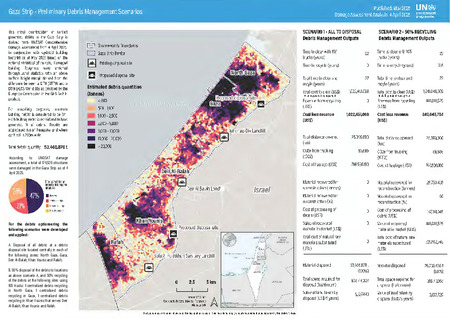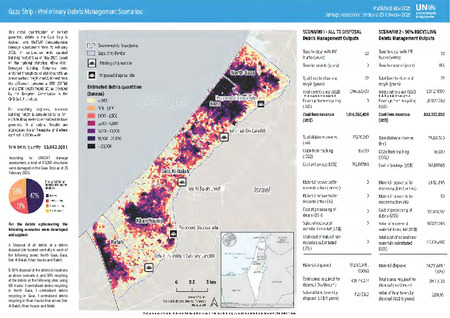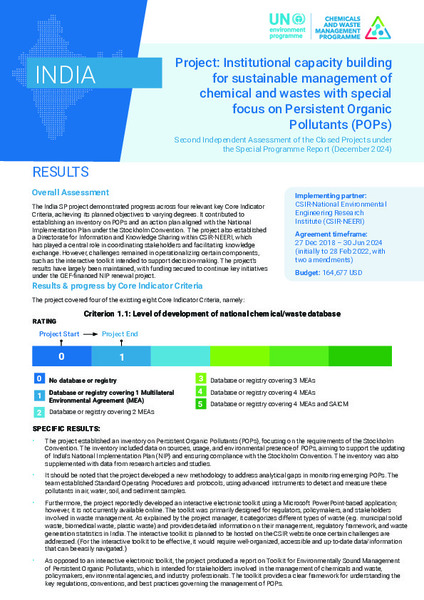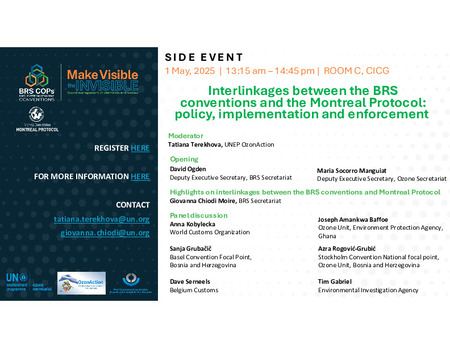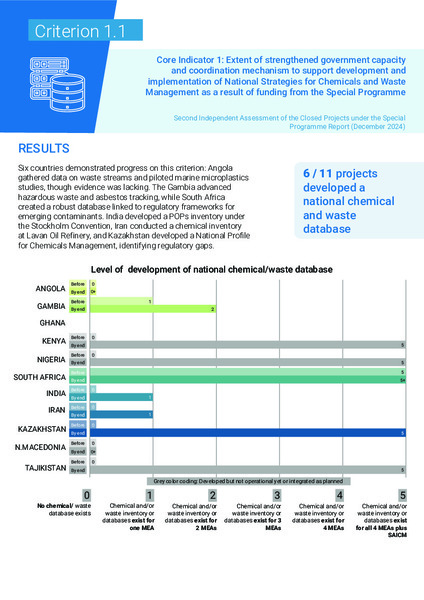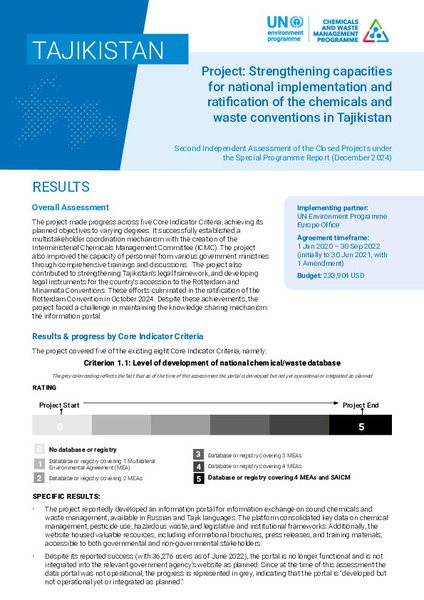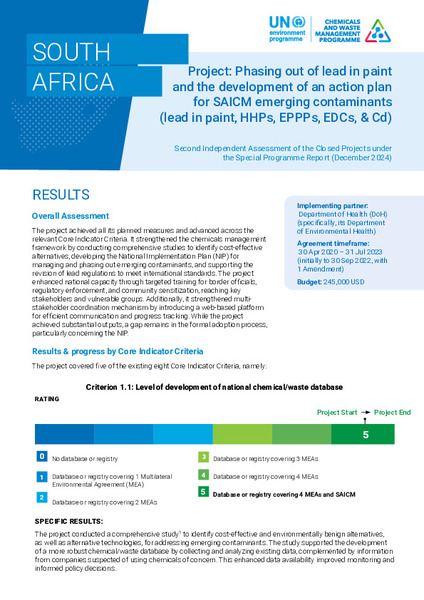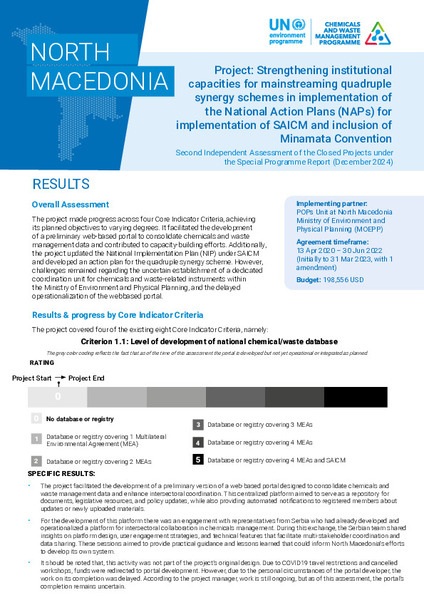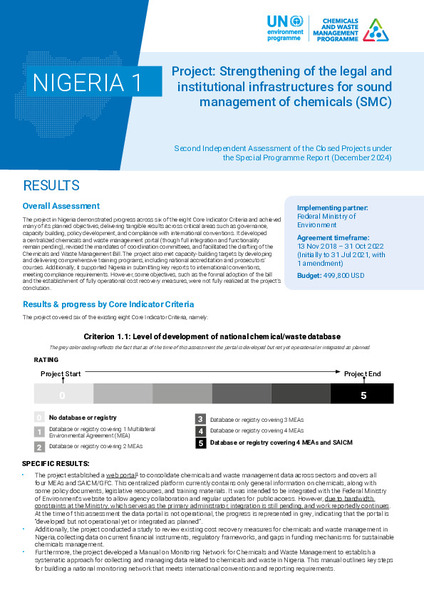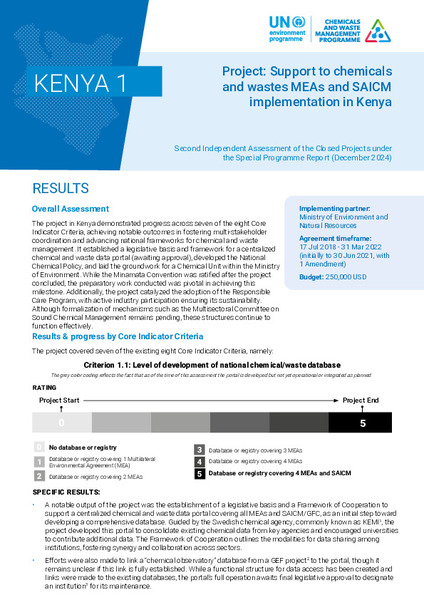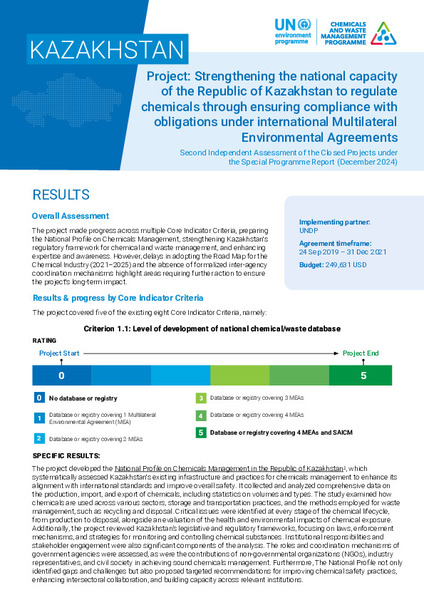Factsheets, Infographics and Brochures
What's New?
-
Values, Culture and Spirituality for Sustainable Lifestyles - A Roadmap for People and the Planet: Driving Values-based Actions Across the Faith Actors Network
(2025-06-23)Faith values, rituals, and religious practices have historically influenced the outlook and relationship between humans and their surrounding environment, striving to achieve a purpose, to find the meaning of life, and ... -
Associate Programme Management Officer (Technical and Scientific Cooperation): [Job Vacancy Announcement] - United Nations Environment Programme
(2025-06)Title: Associate Programme Management Officer (Technical and Scientific Cooperation) Office/Division/MEA: Secretariat of the Convention on Biological Diversity Unit: Capacity-Building and Knowledge Management Unit under ... -
Environment Fund Report - Contributions as at 30 April 2025
(2025-04)Monthly Environment Fund Infographics overview report for the month ending April 30th 2025. -
UN Environment Programme Environment Fund Table Report as at 30 April 2025
(2025-04)Environment Fund Report overview of contributions as at 30 April 2025. -
Junior Professional Officer (Associate Programme Officer - Air Quality: [Job Vacancy Announcement] - United Nations Environment Programme
(2025-06)Title: Associate Programme Officer (Air Quality) Office/Division/MEA: Asia and the Pacific Office Unit: Chemicals and Pollution Action Sub-Programme Location: Bangkok, Thailand Duration: 2 years, with the possibility ... -
Green Recovery of the Black Sea
(2025-05)The Black Sea is a unique, semi-enclosed body of water connected via the Bosphorus Strait, the Sea of Marmara, and the Dardanelles to the Mediterranean Sea and on to the Atlantic Ocean. Connected to the Black Sea in the ... -
Gaza Strip: Preliminary Debris Management Scenarios - Debris Assessment Analysis: 4 April 2025
(2025-05)This initial quantification of conflict generated debris in the Gaza Strip is derived from UNOSAT Comprehensive Damage Assessment from 4 April 2025, in conjunction with updated building footprint as of May 2023 based on ... -
Gaza Strip: Preliminary Debris Management Scenarios - Damage Assessment Analysis: 25 February 2025
(2025-05)This initial quantification of conflict generated debris in the Gaza Strip is derived from UNOSAT Comprehensive Damage Assessment from 25 February 2025, in conjunction with updated building footprint as of May 2023 based ... -
Gaza Strip: Preliminary Debris Quantification - Damage Assessment Analysis: 4th April 2025
(2025-05)This initial quantification of conflict generated debris in the Gaza Strip is derived from a UNOSAT Comprehensive Damage Assessment using imagery from 4 April 2025, in conjunction with updated building footprint as of May ... -
Gaza Strip: Preliminary Debris Quantification - Damage Assessment Analysis: 25th February 2025
(2025-05)This initial quantification of conflict generated debris in the Gaza Strip is derived from a UNOSAT Comprehensive Damage Assessment using imagery from 25 February 2025, in conjunction with updated building footprint as of ... -
India - Project: Institutional capacity building for sustainable management of chemical and wastes with special focus on Persistent Organic Pollutants (POPs) - Second Independent Assessment of the Closed Projects under the Special Programme Report (December 2024)
(2024-12)The India SP project demonstrated progress across four relevant key Core Indicator Criteria, achieving its planned objectives to varying degrees. It contributed to establishing an inventory on POPs and an action plan aligned ... -
Interlinkages between the BRS conventions and the Montreal Protocol: policy, implementation and enforcement (flyer)
(2025-05)Drawing from insights from the recent report - Exploratory study on interlinkages between the Montreal Protocol on Substances that Deplete the Ozone Layer and the Basel, Rotterdam and Stockholm conventions - this event ... -
Criterion 1.1 - Core Indicator 1: Extent of strengthened government capacity and coordination mechanism to support development and implementation of National Strategies for Chemicals and Waste Management as a result of funding from the Special Programme - Second Independent Assessment of the Closed Projects under the Special Programme Report (December 2024)
(2024-12)Six countries demonstrated progress on this criterion: Angola gathered data on waste streams and piloted marine microplastics studies, though evidence was lacking. The Gambia advanced hazardous waste and asbestos tracking, ... -
Tajikistan - Project: Strengthening capacities for national implementation and ratification of the chemicals and waste conventions in Tajikistan - Second Independent Assessment of the Closed Projects under the Special Programme Report (December 2024)
(2024-12)The project made progress across five Core Indicator Criteria, achieving its planned objectives to varying degrees. It successfully established a multistakeholder coordination mechanism with the creation of the Interministerial ... -
South Africa - Project: Phasing out of lead in paint and the development of an action plan for SAICM emerging contaminants (lead in paint, HHPs, EPPPs, EDCs, & Cd) - Second Independent Assessment of the Closed Projects under the Special Programme Report (December 2024)
(2024-12)The project achieved all its planned measures and advanced across the relevant Core Indicator Criteria. It strengthened the chemicals management framework by conducting comprehensive studies to identify cost-effective ... -
North Macedonia - Project: Strengthening institutional capacities for mainstreaming quadruple synergy schemes in implementation of the National Action Plans (NAPs) for implementation of SAICM and inclusion of Minamata Convention - Second Independent Assessment of the Closed Projects under the Special Programme Report (December 2024)
(2024-12)The project made progress across four Core Indicator Criteria, achieving its planned objectives to varying degrees. It facilitated the development of a preliminary web-based portal to consolidate chemicals and waste ... -
Nigeria 1 - Project: Strengthening of the legal and institutional infrastructures for sound management of chemicals (SMC) - Second Independent Assessment of the Closed Projects under the Special Programme Report (December 2024)
(2024-12)The project in Nigeria demonstrated progress across six of the eight Core Indicator Criteria and achieved many of its planned objectives, delivering tangible results across critical areas such as governance, capacity ... -
Kenya 1 - Project: Support to chemicals and wastes MEAs and SAICM implementation in Kenya - Second Independent Assessment of the Closed Projects under the Special Programme Report (December 2024)
(2024-12)The project in Kenya demonstrated progress across seven of the eight Core Indicator Criteria, achieving notable outcomes in fostering multi-stakeholder coordination and advancing national frameworks for chemical and waste ... -
Kazakhstan - Project: Strengthening the national capacity of the Republic of Kazakhstan to regulate chemicals through ensuring compliance with obligations under international Multilateral Environmental Agreements - Second Independent Assessment of the Closed Projects under the Special Programme Report (December 2024)
(2024-12)The project made progress across multiple Core Indicator Criteria, preparing the National Profile on Chemicals Management, strengthening Kazakhstan's regulatory framework for chemical and waste management, and enhancing ...



